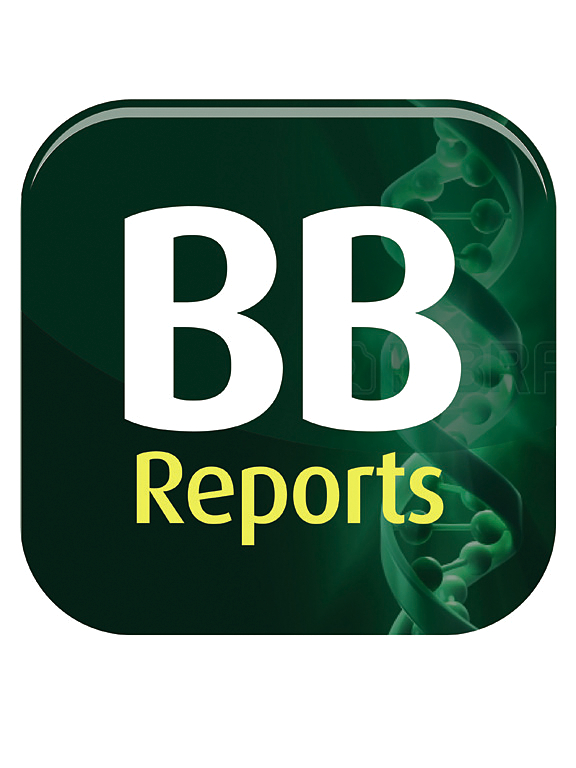Fenugreek inhibits cathepsin G activity and suppresses the progression of malignant phenotypes in MCF-7 cells
IF 2.3
Q3 BIOCHEMISTRY & MOLECULAR BIOLOGY
引用次数: 0
Abstract
Spices and herbs, which are derived from natural botanical sources, contain many bioactive compounds and play an important role in human health. The general and specific health benefits of these spices and herbs include anti-inflammatory, antioxidant, and anti-tumorigenic activities. Previously, we showed that cathepsin G, which is a neutrophil-derived serine protease localized in human breast cancer tissues, promotes cancer metastasis via induction of platelet-activating factor acetylhydrolase 1B2 (PAFAH1B2) expression in MCF-7 human breast cancer cells. Therefore, although regulation of cathepsin G activity is thought to be important in human breast cancer progression, no compounds that inhibit the activity have been identified for therapeutic purposes. In this study, we screened 50 spice and herb extracts. Peppermint, clove, Sichuan pepper, and fenugreek exhibited strong inhibitory effects on cathepsin G activity and suppressed cathepsin G-induced MCF-7 cell aggregation.; importantly, fenugreek suppressed the increase in PAFAH1B2 expression. The IC50 of 37.38 μg/mL of fenugreek extract that showed inhibitory effect on cathepsin G-induced malignant progression was 5.87 times lower than the concentration that exerted cytotoxic effect. Interestingly, quercetin and trigonelline contained in fenugreek inhibited cathepsin G activity and suppressed the induction of cell aggregation and PAFAH1B2 expression in human breast cancer cells. These results suggest that quercetin and trigonelline are partly responsible for the inhibitory effect of fenugreek on cathepsin G-induced malignant progression of human breast cancer cells. Our findings provide a new breast cancer treatment strategy targeting cathepsin G, and fenugreek may have synergistic effects when combined with therapeutic drugs.

胡芦巴抑制组织蛋白酶G活性并抑制MCF-7细胞恶性表型的进展
从天然植物中提取的香料和草药含有许多生物活性化合物,对人体健康起着重要作用。这些香料和草药的一般和特定的健康益处包括抗炎、抗氧化和抗肿瘤活性。先前,我们发现组织蛋白酶G是一种定位于人乳腺癌组织的中性粒细胞来源的丝氨酸蛋白酶,通过诱导血小板活化因子乙酰水解酶1B2 (PAFAH1B2)在MCF-7人乳腺癌细胞中的表达来促进癌症转移。因此,尽管组织蛋白酶G活性的调节被认为在人类乳腺癌的进展中很重要,但尚未发现用于治疗目的的抑制组织蛋白酶G活性的化合物。在这项研究中,我们筛选了50种香料和草药提取物。薄荷、丁香、花椒和胡芦巴对组织蛋白酶G活性有较强的抑制作用,能抑制组织蛋白酶G诱导的MCF-7细胞聚集。重要的是,葫芦巴抑制了PAFAH1B2表达的增加。对组织蛋白酶g诱导的恶性进展有抑制作用的胡芦巴提取物37.38 μg/mL的IC50比具有细胞毒作用的浓度低5.87倍。有趣的是,胡芦巴中含有的槲皮素和葫芦巴碱抑制了人乳腺癌细胞中组织蛋白酶G的活性,抑制了细胞聚集的诱导和PAFAH1B2的表达。这些结果表明槲皮素和葫芦巴碱对组织蛋白酶g诱导的人乳腺癌细胞恶性进展的抑制作用部分负责。我们的研究结果提供了一种新的针对组织蛋白酶G的乳腺癌治疗策略,胡芦巴与治疗药物联合使用可能具有协同作用。
本文章由计算机程序翻译,如有差异,请以英文原文为准。
求助全文
约1分钟内获得全文
求助全文
来源期刊

Biochemistry and Biophysics Reports
Biochemistry, Genetics and Molecular Biology-Biophysics
CiteScore
4.60
自引率
0.00%
发文量
191
审稿时长
59 days
期刊介绍:
Open access, online only, peer-reviewed international journal in the Life Sciences, established in 2014 Biochemistry and Biophysics Reports (BB Reports) publishes original research in all aspects of Biochemistry, Biophysics and related areas like Molecular and Cell Biology. BB Reports welcomes solid though more preliminary, descriptive and small scale results if they have the potential to stimulate and/or contribute to future research, leading to new insights or hypothesis. Primary criteria for acceptance is that the work is original, scientifically and technically sound and provides valuable knowledge to life sciences research. We strongly believe all results deserve to be published and documented for the advancement of science. BB Reports specifically appreciates receiving reports on: Negative results, Replication studies, Reanalysis of previous datasets.
 求助内容:
求助内容: 应助结果提醒方式:
应助结果提醒方式:


